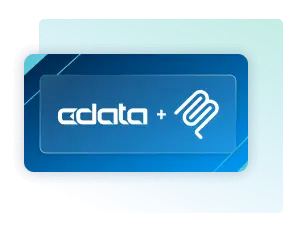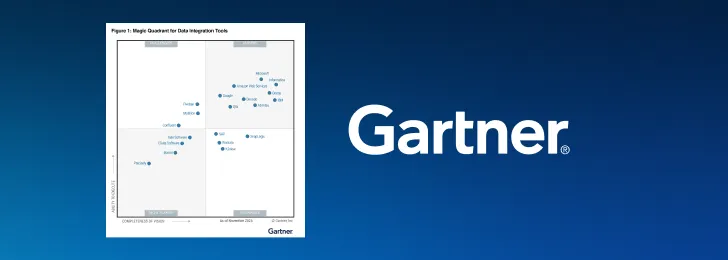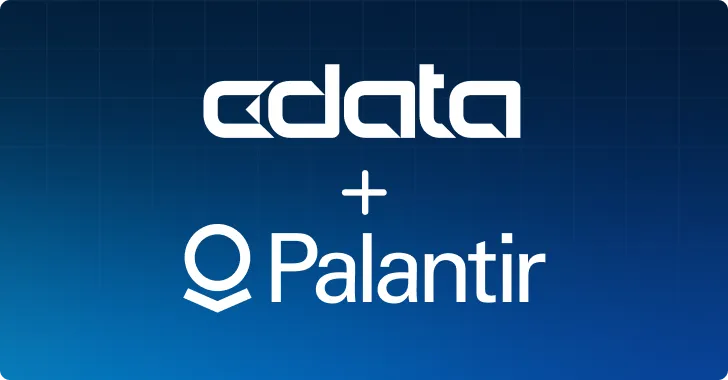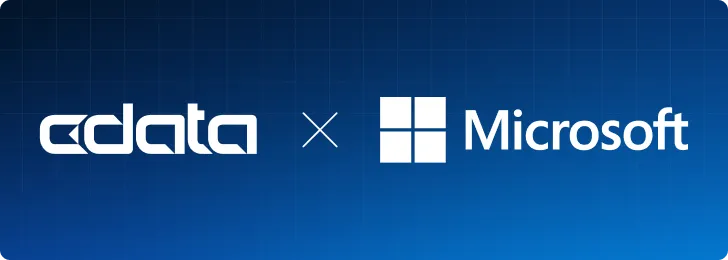
Generative AI has transformed how we interact with information, enabling us to "compute" using natural language. Large Language Models (LLMs) can now synthesize knowledge, reason through queries, and generate solutions with remarkable fluency. Yet, their potential remains largely untapped in the workplace.
Why? Because the questions we ask at work require access to enterprise systems like CRMs, ERPs, document repositories, and collaboration tools. These systems hold structured, business-critical data objects like Opportunity in Salesforce or Issue in Jira. If LLMs could reliably access and interact with this data in real-time, the enterprise would become conversational, dynamic, and AI-native. Without that connection, AI remains a powerful but disconnected tool, unable to help with our most pressing business needs.
I’ll share my perspective on not just how CData connectivity can bridge the gap between LLMs and enterprise data sources. But how that connectivity can meet the universality, performance, and security demands an enterprise will inevitably have to deploy at scale.
The missing link: Structured data access for LLMs
To unlock this potential, we need a way to bridge structured business data and natural language interfaces. The Model Context Protocol (MCP) has opened new possibilities for extending LLM capabilities through specialized tools. However, most current implementations are narrowly focused on specific actions. What's truly needed is a universal language allowing LLMs to seamlessly access business data across all enterprise systems.
SQL stands as the unrivaled language for data access due to its declarative nature, universal adoption, and powerful yet accessible syntax. Its structured format enables powerful data manipulation through filtering, aggregation, joining, and analytical functions. When equipped with metadata that describes business entities — what they are, what they contain, and how they relate — LLMs can write SQL to precisely access and transform the enterprise information they need. They can, quite literally, talk to your data.
The enterprise API problem
Most enterprise systems don’t speak SQL. They expose fragmented, inconsistent APIs. Some support filtering on specific fields but not on others, pagination methods vary, and few support joins. These inconsistencies make it difficult for LLMs (or developers) to interact with enterprise systems reliably or securely.
Today, many teams try to solve this problem in one of two ways:
- Generate API access code using LLMs: This is prone to errors and difficult to maintain.
- Move data to a warehouse: Centralizes access but complicates governance and introduces latency.
Both approaches fall short. Code generation leads to untested, opaque logic. Warehousing copies data out of its source system, often using admin-level access, creating security risks and compliance challenges.
What’s missing is a live, governed, user-specific bridge between LLMs and business data.
CData Connectors: The missing infrastructure for agentic AI
CData has spent over a decade building connectors that standardize how to access data from various data systems. Our connectors speak standard SQL on one side and translate it into API calls on the other. We currently support 350+ data sources across CRM and ERP platforms, accounting systems, cloud apps, and databases. Think of CData connectors as real-time interpreters.
But it’s not just translation. We meticulously model each SaaS application’s data as rich business objects with deep metadata that describes entity semantics, relationships, and constraints. This modeling is what enables an LLM to understand and operate on enterprise data at a high level.
And we’ve built for performance. If an API only partially supports the semantics of a SQL query, the connector will intelligently push down what it can to the source system and handle the rest locally. Our connectors always minimize client-side processing.
Now imagine giving an LLM full, dynamic access to that model — not with brittle tools, but with MCP superpowers.
MCP + CData: Making AI truly agentic
We announced today our free beta release of CData MCP Servers. We’ve wrapped our connectors in an MCP server that exposes SQL-based tools to LLMs. This isn’t a one-off integration. It’s a general-purpose interface that allows LLMs to introspect business data, write and execute SQL, and even perform write operations - all on behalf of the user.
This architecture transforms LLMs from passive responders to true enterprise agents that are capable of querying, reasoning over, and acting on your systems with intelligence and guardrails.
Enterprise-grade security, built-in
As enterprises embrace agentic AI, security and access governance must remain non-negotiable. One of the greatest advantages of the CData approach is that it avoids the pitfalls of data duplication and privilege overreach.
Unlike traditional methods that require moving data into warehouses or generating brittle integration code, CData Connectors access live data in place, through secure, governed APIs while using the authenticated identity of the user.
This approach offers several critical benefits:
- Identity-Aware Access: Each query is executed under the specific user's credentials, ensuring that permissions and role-based access controls (RBAC) from the source system are always respected.
- No Data Copying: Data is never replicated or staged outside its system of record. That means reduced attack surface, simpler compliance, and fewer headaches for InfoSec teams.
- Auditability & Governance: Every query, read, or write can be logged and traced — ensuring enterprise-grade transparency and traceability.
In a world where AI agents are acting on behalf of users, security and compliance are crucial. CData was built with this reality in mind.
See it in action: Claude + CData MCP Servers
With today’s release, we’re providing a technical preview of the power of this technology. We’ve integrated our MCP Servers with Anthropic’s Claude, and the results have exceeded expectations.
This is just the beginning. Soon, you’ll see these capabilities integrated across CData’s offerings and embedded within the products of our partners.
Why this matters
Agentic AI isn’t just about natural language. It’s about action. It is about taking meaningful steps in the real world on behalf of the user. That requires context, security, and real-time access to enterprise data. CData Connectors offer the missing infrastructure that makes this possible.
If you’re building the next generation of enterprise AI, we invite you to build on top of the infrastructure we’ve already perfected. Because the future of AI at work is not just conversational. It’s agentic.
And it starts with a simple idea: Let your data speak SQL — and let your AI listen.





